Coffee & Catholic Social Teaching: Delegation Visits Jesuit-Supported Coffee Cooperative in Mexico
BY ANDREW HANSON-QUINTANA | March 5, 2024
As a coffee lover, Grace Adams relished in the focus required to sense all of the flavors and distinguishing notes of the various coffees she tasted as part of her visit to Capeltic—an organic, farmer-owned coffee cooperative supported by the Jesuits in Chiapas, Mexico. Adams—ISN’s coordinator for the Catholic Ethical Purchasing Alliance (CEPA)—spent a week with a delegation of individuals from across the Jesuit network in U.S. from Santa Clara University, Creighton University, and MAGIS Americas. The group visited Capeltic’s operation in Chiapas and other parts of Mexico where they have established coffee shops.
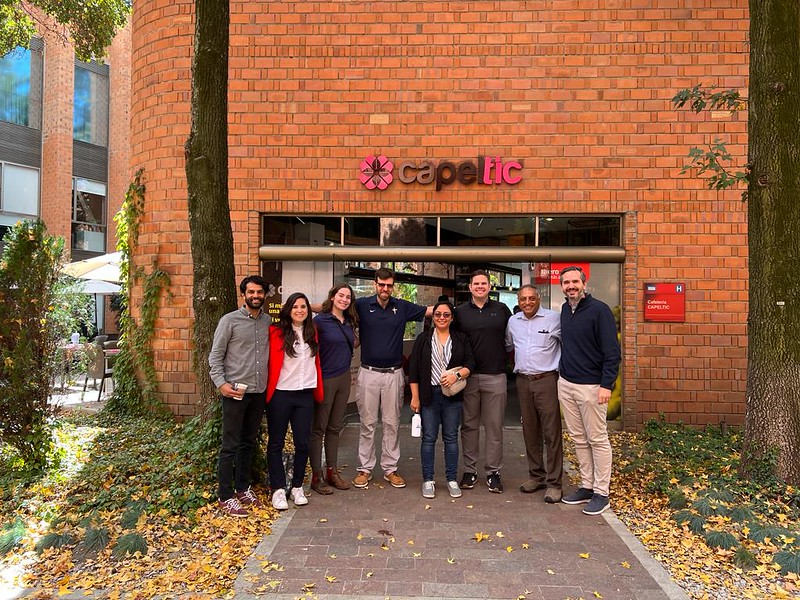
Grace Adams, third from left, with the delegation visiting Capeltic coffee shops, farms, and production facilities in Mexico.
The first stop was at Universidad Iberoamericana, the Jesuit university in Mexico City which was home to the first Capeltic coffee shop. This partnership between the urban campus and the rural coffee cooperative bordering Guatemala is a product of Jesuits and collaborators living and working alongside the Indigenous community in Chiapas for over sixty years. About 20 years ago, the Indigenous residents of this farming region of Chiapas approached the Jesuits for assistance to end forced migration from the region. While many farmers grew and sold coffee beans, the lack of direct access to a market forced them to sell their crop to local coffee brokers at fluctuating prices, sometimes forcing the farmer to take out predatory loans in order to simply continue production. This led to generational debt and poverty, and, in many cases, forced migration, particularly when compounded by a poor harvest. Through much collaboration between local farmers, the Mexican Jesuits, and the economics department at Iberoamericana, the coffee cooperative took shape. The end product of high-grade coffee ships out directly to consumers and distributors, including to their own coffee shops, many of which are found on Jesuit campuses throughout Mexico.
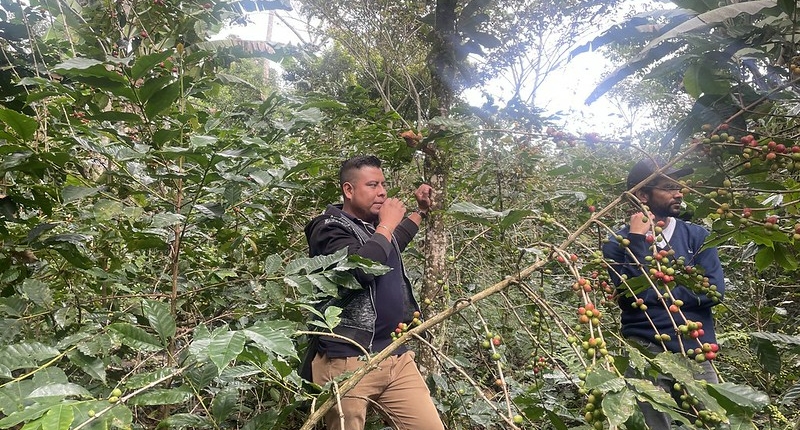
In the coffee fields learning about growing coffee beans with Alfredo, a coffee planter, farmer, and member of the cooperative
Adams and the visiting delegation spent the majority of their visit with community members in Chiapas. Getting to walk a plot of farm sticks out particularly for Adams: “I felt the intersectionality of people and the earth and how that was incorporated into the work. There was a real concern for the earth. The reality for many coffee farmers is that they have never gotten to see, smell, or taste what happens to their beans. People who are working with Capeltic are getting to experience the full fruit of their labor in resources and also seeing the craft of their work come to fruition.”

The operation continues to be run by the Indigenous residents who are largely from the Tseltal Indigenous community. They reap the benefits of being able to mentor and form their children in a process that is infused with their cultural values. The expanding number of coffee shops highlights the consumers’ desire to purchase from ethical sources, where individuals are paid living wages and exploitative processes are weeded out. The concept of ethical production and purchasing has deep roots in Catholic Social Teaching and tradition. The Church teaches that “the economy must serve people, not the other way around. Work is more than a way to make a living; it is a form of continuing participation in God’s creation. If the dignity of work is to be protected, then the basic rights of workers must be respected—the right to productive work, to decent and fair wages, to the organization and joining of unions, to private property, and to economic initiative.”
“One of the cool things about Capeltic is the way the Mexican Jesuit province has been able to link this social project with their higher education institutions. That’s a great example of working collaboratively to cultivate a relationship between those who produce a product through an ethical mindset to those who are consumers.”
ISN executive director, Christoper Kerr, expressed his hope to further develop the capacity of young people to be ethical consumers, especially students at Jesuit universities in North America. “We hear from institutions that they want to live out their values, but finding pathways for that is very difficult. Society is focused on buying a lot, buying often, and buying with no regard for what will happen to the product at the end of its life.” Kerr recognizes that the ongoing work with Capeltic through CEPA is countercultural because it requires disrupting well-formed pathways that prioritize the ease and frequency of purchasing over the ethics of consumption. “One of the cool things about Capeltic is the way the Mexican Jesuit province has been able to link this social project with their higher education institutions. That’s a great example of working collaboratively to cultivate a relationship between those who produce a product through an ethical mindset to those who are consumers.” The cafés on the Jesuit campuses end up being part of the social justice education of those institutions. Being a more conscious consumer due to what is available for purchase on campus better forms students to become ethical consumers when they go out into the world. “At the same time,” Kerr adds, “it gives Indigenous farmers access to markets that can help them flourish in their livelihood.”

Adams and her travel companions returned to their respective homes excited about what a deeper partnership between Capeltic and the Jesuit network around the U.S. could entail. “I’m eager for folks to learn more about the coffee business and how this can be done in a way that is really uplifting for the people who work it with pride. It’s a story that is important to CEPA and it’s the type of story that we want to get to people so that they understand the dignity of work.”
Individual bags of Capeltic coffee beans can be purchased through ISN’s online store. To learn more about how you can deepen your campus’s partnership with CEPA and Capeltic, please reach out to Grace Adams at [email protected].
Andrew has been involved with Jesuit education since his undergraduate days at Creighton University. He has since studied, taught, ministered, and contributed at many other Jesuit institutions. He now lives in Puerto Rico with his wife and toddler and collaborates with ISN on communications projects.

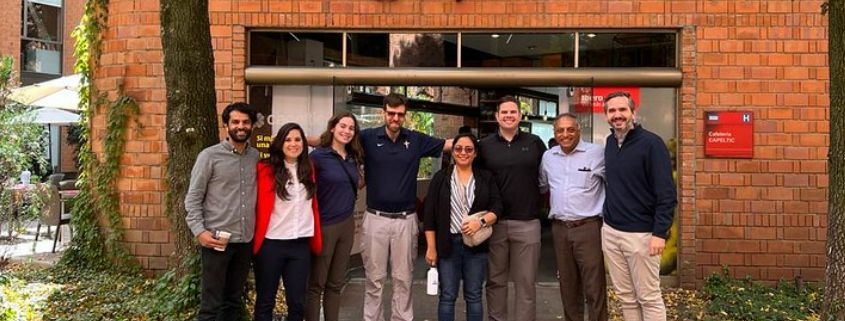



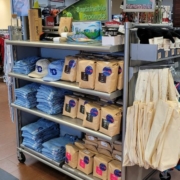
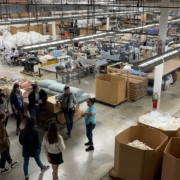


Nice to see Coffee and Catholic Social Teaching going forward hand in hand.